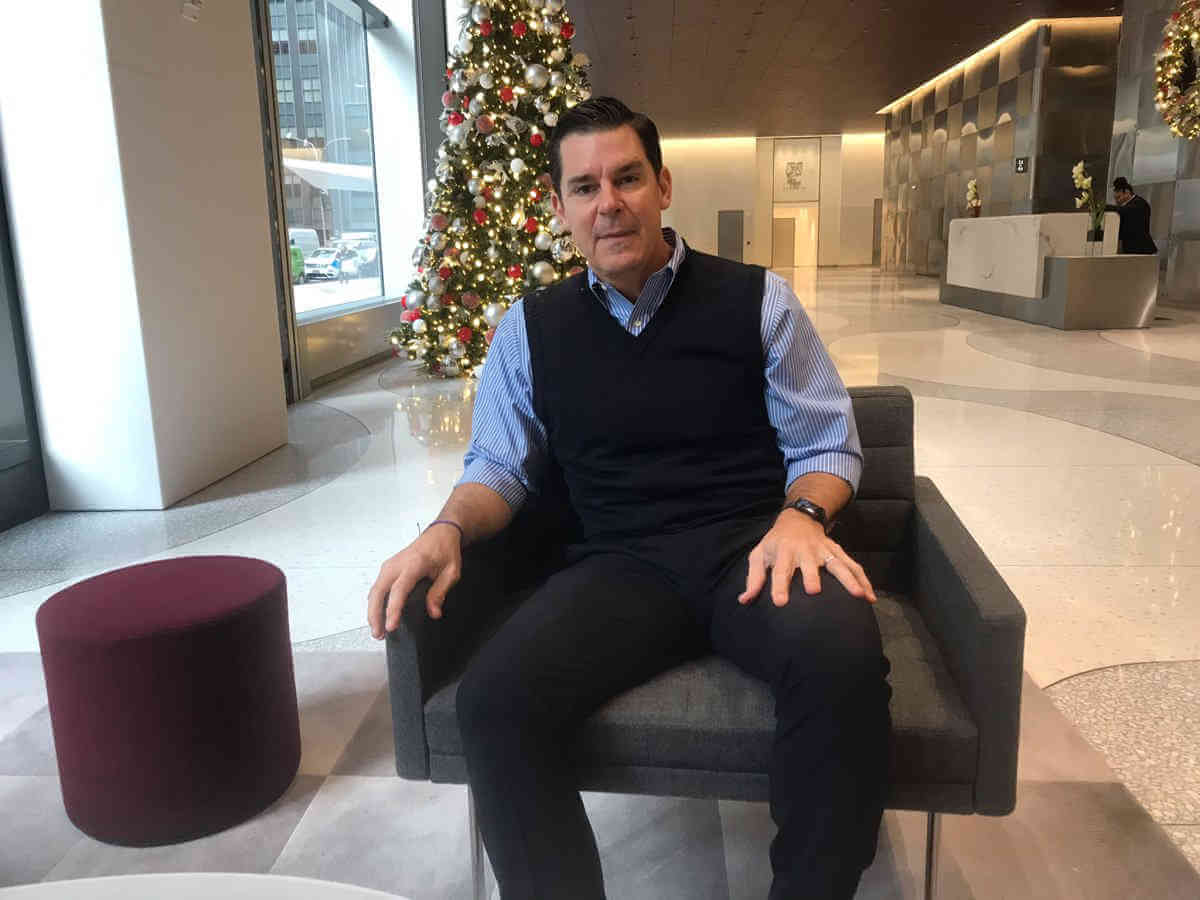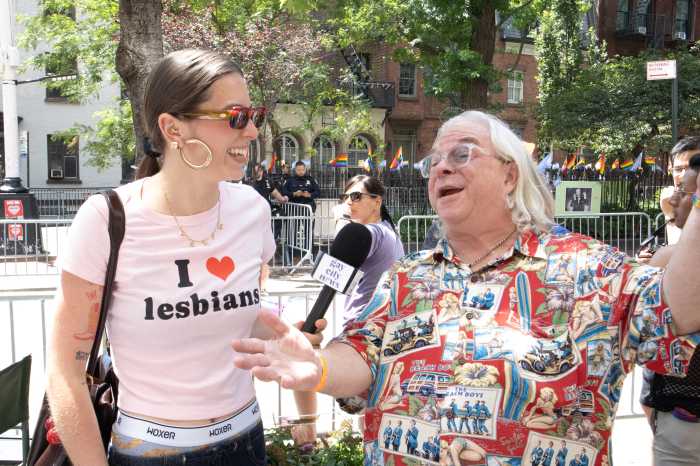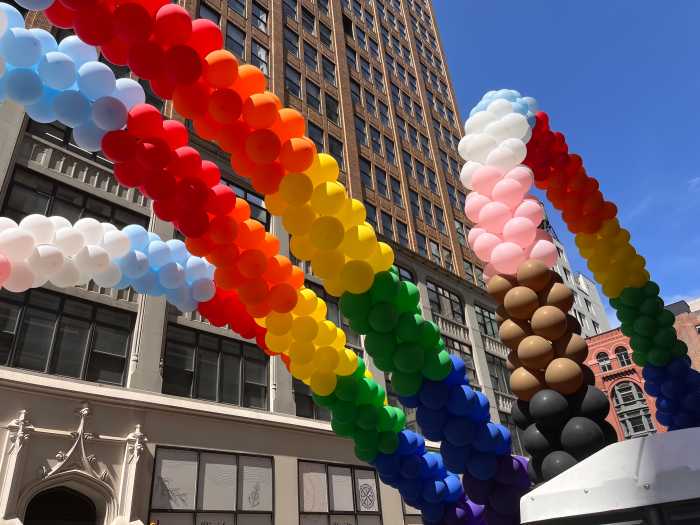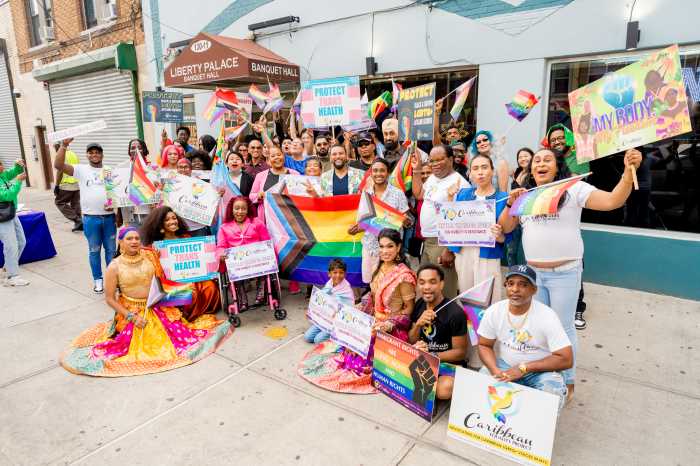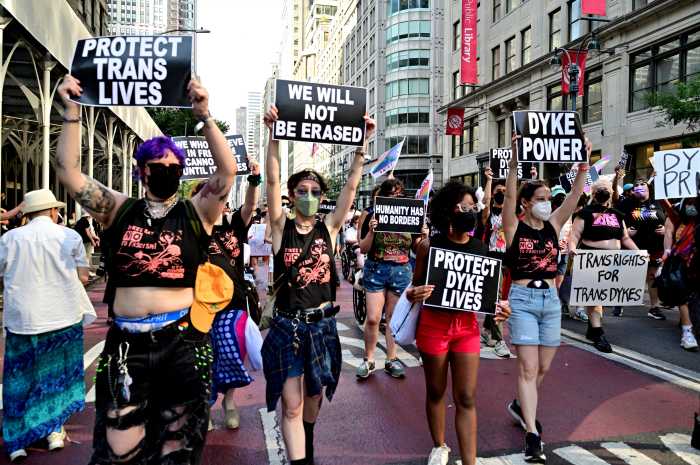In the mid-‘90s Billy Bean was navigating the tail end of his career in Major League Baseball and Rick Welts was busy ascending to the pinnacle of the NBA’s front office.
Neither had opened up publicly about their lives. Nor did they know each other.
But these days, the two are linked in a fascinating way: Both are out gay executives in their respective sports leagues, a connection that is equal parts rare and remarkable when neither of their leagues boasts any out gay players. The NFL and the NHL also have no out players, representing a stark contrast to the many athletes who are out across women’s professional sports. It should be noted, however, that Katie Sowers, an out lesbian assistant coach for the San Francisco 49ers, is making history as the first out coach in the NFL.
Bean, now vice president and special assistant to commissioner Rob Manfred, came out in 1999, several years after his retirement from professional baseball, and Welts came out in 2011, shortly before he left his job in the Phoenix Suns’ front office to become president of the Golden State Warriors.
Bean, who had played with the Padres, Dodgers, and Tigers, returned to the MLB in 2014 to serve as ambassador of inclusion, a new position that entailed working with teams to help them ramp up diversity efforts. He dusted off his glove and started visiting teams at spring training, where he practiced alongside players on the field and addressed organizations about issues of diversity. He also speaks Spanish, further allowing him to communicate with more players in a league where many individuals hail from Spanish-speaking countries.
“I allow the clubs to invite me,” Bean explained during an interview with Gay City News at the MLB headquarters in Manhattan. “There is something about a former player talking about life issues and the ‘why’ about that, not just ‘you should,’ because at the end of the day, I tell them this is a consideration that is completely up to you to make.”
Players, coaches, and front office executives have largely welcomed Bean to their organizations. There have been some bumps along the way, including in 2015 when then-Mets outfielder Daniel Murphy responded to Bean’s visit at Mets’ spring training by saying, “I disagree with his lifestyle” and “I do disagree with the fact that Billy is a homosexual.” The two have since patched things over.
Bean’s work has had a profound effect on the league in ways that are increasingly visible even to the average fan. He has helped teams forge relationships with local LGBTQ communities, paving the way for the proliferation of Pride nights across the league in the time since he came onboard. It is now a common occurrence to see rainbow team logos emblazoned on hats and same-sex couples smooching on kiss cams in baseball stadiums.
Most recently, he has helped lead an education initiative for minor leaguers aimed at preaching diversity, acceptance, and tolerance, a campaign that he speaks about with excitement.
Bean was rewarded in 2017 with a promotion to his current role — which still includes much of the work he started in 2014 — largely due to his achievements in that position. But his bosses aren’t the only ones to notice his impact. He has collaborated with other professional sports leagues when asked.
“While other leagues have people who are engaged in these issues, MLB has actually created a position only focused on these issues,” Welts told Gay City News. “I love everything the NBA does on this subject, but baseball has done something even different.”
Welts has a more indirect impact on queer issues in sports because much of his work centers around running an NBA team that has reached the finals five times and secured two championships since he was hired shortly after coming out in 2011. But he is nonetheless very active in advocacy work throughout the LGBTQ community and he travels around the nation speaking about his story. He also brings his partner, Todd Gage, around his team and jokes that he “is better friends with the owners of the team than I am because he’s much better looking than I am.”
Bean and Welts have already carved out special places in sports history. Welts is the first out gay executive of an NBA team and Bean is the second — and the only living — out gay person to have played in the big leagues. The first was Glenn Burke, a deeply underappreciated star athlete who played for the Athletics and Dodgers in the mid-to-late 1970s and died of complications from AIDS in 1995. Burke, who was in many ways out to his teams, was subject to homophobic slurs by manager Billy Martin and drew the ire of then-Dodgers manager Tommy Lasorda — a revered figure to this day — for becoming friends with Lasorda’s gay son, who also died from AIDS complications. Burke wrote in his autobiography, “Out at Home,” that Dodgers general manager Al Campanis went as far as offering to pay for an extravagant honeymoon if Burke would just marry a woman.
“I try to put him up there first in every way because his story is the same thing where we just needed one or two people to be in our corner and it didn’t work out that way,” said Bean, who did not get a chance to meet Burke before his death but has grown close to his surviving family members.
The sense of loneliness as a closeted sports figure is common among those who reflect on their lives after coming out. Bean explained in great detail in his autobiography, “Going the Other Way,” the horrors he endured as a closeted player, including having to secretly grieve the death of his partner, Sam, who died of AIDS complications in 1995.
Bean and Welts both conveyed, in their own words, the positive impact of connecting with others like them after coming out.
“The outreach I get weekly from somebody on a team or league who is kind of trying to figure all this out and connect with someone who would understand their experience, there is no greater honor than doing that,” Welts said. “But none of that would have happened if I didn’t take the step of telling my story.”
Many other connections wouldn’t have formed without coming out stories. Case in point: Bean now regularly plays tennis with former NBA player Jason Collins, who made history in 2013 by becoming the first NBA player to come out as gay. And one year after Bean came out, he heard from Dale Scott, who had yet to come out at the time but did so in 2014 during his three-decade tenure as an MLB umpire. Bean was living in Miami when Scott first contacted him nearly two decades ago.
“He was going to work the Marlins game, and I remember sitting down with him and I got so choked up and emotional,” Bean recalled. “If that might have happened as a player, I would feel like I had one friend and with that friend I could have talked about what it feels like. He was in the closet for 30 years in the big leagues. And sometimes all you need is one person.”
The lack of support systems weighed even heavier in the face of the homophobic culture that pushed Bean and Burke out of professional baseball during their playing days. Burke wrote in his autobiography that “prejudice just won out,” and Bean said in this interview that his struggle to come out to his parents “literally was the driving force for me to quit playing baseball.” He did eventually come out to them.
It was a much different era by the time Welts came out in 2011. That was evident when it was not until an hour into his job interview with the Warriors that one of the owners interviewing him casually asked how his coming out story was received.
“It was so not on their radar,” he said. “It was like, wow, OK, I like the culture of this place.”
Bean and Welts, of course, are now able to relate in ways they couldn’t when they were not out. They reside on opposite coasts but remain in close touch, serving as resources for one another and sharing experiences about their unique roles in a straight-dominated sports world.
“Rick is somebody I just try to steal all his information from,” Bean said with a laugh. “Even when I was outside of baseball, I would email him and ask his opinion when I was challenged with a situation and was trying to do something positive. He’s so wise and so humble; you’d never know all the things he has accomplished.”
Welts likewise heaped praise on his baseball counterpart, saying that the two know each other “very well” and describing Bean as a “good friend” who is able to relate to the work they both carry out.
Bean and Welts each offered a tempered but somewhat hopeful picture of the future of gay athletes in a male professional sports world that remains stubbornly behind the times. They hope to at least set the scene for others to come out when they are ready.
“We can’t make the decision for them,” Welts said. “It’s the most personal, difficult decision they’ll probably ever make. What we can do is make sure we create the work atmosphere where they know their job is not in jeopardy.”
Of course, the broader struggle of LGBTQ athletes in major American professional sports relies on the very existence of athletes who have been there, done that — on the playing field. Bean knows, as the only living MLB player to have come out, that he will have to leverage his own legacy to help usher in queer athletes in the future.
“In the 150 years of major league baseball, [Burke] and I are the only former major leaguers who ever disclosed they’re gay,” he said. “That’s really hard to believe in a way that constantly reminds me that we have a lot of work to do.”


